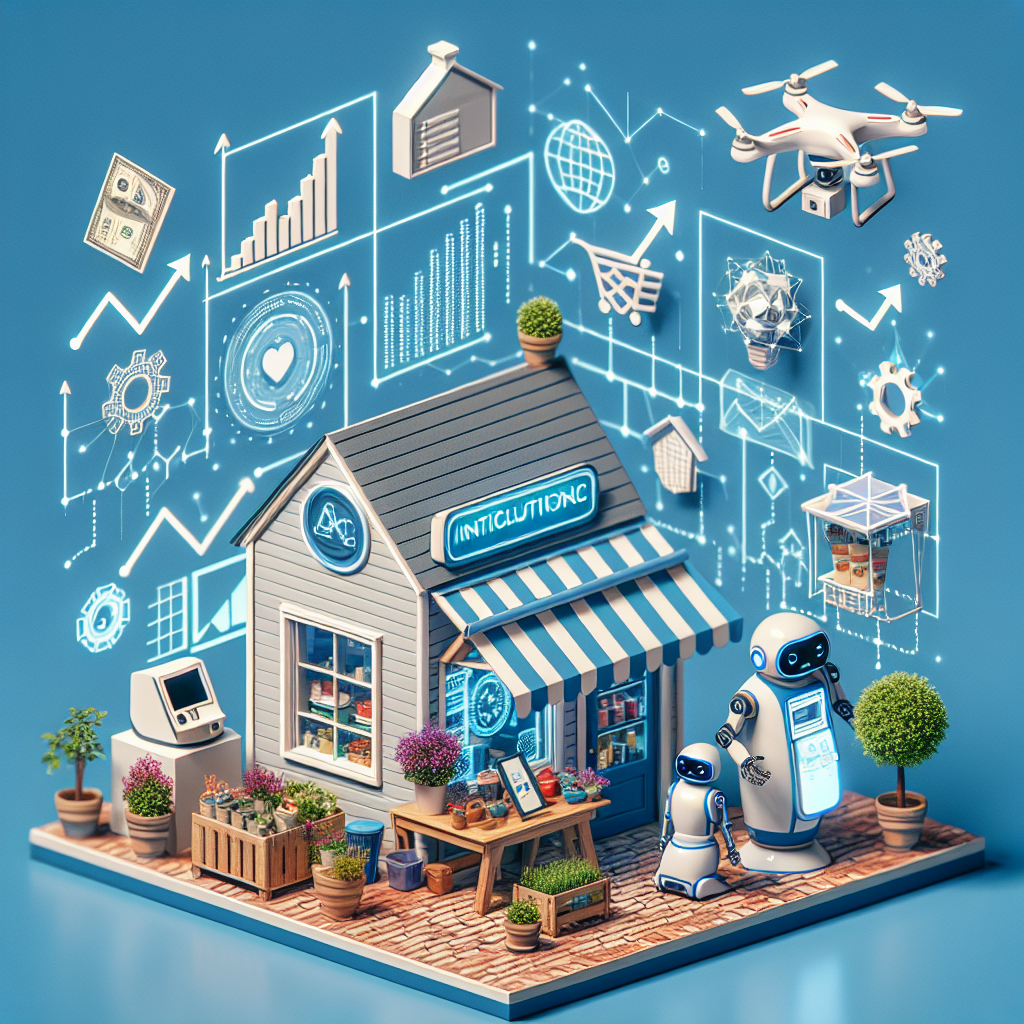The advent of artificial intelligence (AI) has transformed numerous sectors, but its impact on small businesses is particularly noteworthy. This article explores how AI can serve as a crucial ally for small businesses, enhancing operations, driving growth, and creating competitive advantages.
Understanding AI and Its Applications
Artificial Intelligence refers to the simulation of human intelligence in machines programmed to think and learn. The applications of AI are vast and can be particularly beneficial for small businesses, which often have limited resources. AI encompasses various technologies, including:
- Machine Learning: Enables computers to learn from data without explicit programming.
- Natural Language Processing (NLP): Allows machines to understand and interpret human language.
- Computer Vision: Enables machines to interpret and understand visual information.
- Robotic Process Automation (RPA): Automates repetitive tasks typically performed by humans.
Benefits of AI for Small Businesses
1. Improved Efficiency and Productivity
AI automates mundane and repetitive tasks, allowing small business owners and employees to focus on more strategic aspects. For instance, AI-driven tools can manage customer inquiries, schedule appointments, and even handle payroll tasks, dramatically reducing administrative overhead.
2. Enhanced Customer Experience
AI technologies, especially chatbots and virtual assistants, can provide immediate customer support, offering personalized interactions based on past customer behavior and preferences. This not only improves customer satisfaction but also increases loyalty, as clients feel valued and understood.
3. Data-Driven Decision Making
Small businesses can leverage AI to analyze large datasets quickly and efficiently. AI algorithms can identify trends, customer preferences, and market dynamics, enabling informed decision-making that would be impossible with manual analysis alone. This can lead to better marketing strategies, product development, and customer engagement practices.
4. Cost Reduction
AI can contribute to significant cost savings for small businesses. By automating processes and reducing the need for extensive human labor, businesses can allocate resources more efficiently. AI tools for inventory management also help reduce waste and optimize stock levels, further driving down costs.
5. Targeted Marketing
With AI, small businesses can achieve a deeper understanding of their target market. AI algorithms can analyze customer data to segment audiences, tailor marketing campaigns, and predict customer behavior. This level of personalization often results in higher conversion rates and better ROI on marketing efforts.
Examples of AI Tools for Small Businesses
1. Chatbots
Chatbots like Drift and Intercom enhance customer engagement by providing instant responses to inquiries. They can assist with troubleshooting, product recommendations, and even facilitate sales.
2. Email Marketing Automation
Tools like Mailchimp and HubSpot use AI to optimize email marketing campaigns. They can analyze engagement data to determine the best times to send emails and personalize content based on user behavior.
3. Customer Relationship Management (CRM)
AI-powered CRM systems like Salesforce’s Einstein or Zoho CRM can help businesses manage customer relationships more effectively. They provide insights into customer interactions and automate tasks to improve sales strategies.
4. Inventory Management Systems
Tools like TradeGecko and Zoho Inventory use AI to predict demand and optimize supply chain operations, ensuring businesses have the right products available at all times.
Challenges in Integrating AI
Despite its advantages, small businesses may face several challenges when implementing AI technologies:
1. Initial Investment
The cost of implementing AI solutions can be a barrier for many small businesses, especially those that operate on tight budgets. Investing in AI infrastructure, software, and training may seem daunting.
2. Technical Expertise
Many small businesses may lack the technical know-how or manpower to effectively implement and utilize AI technologies. This could hinder their ability to leverage AI fully.
3. Data Privacy Concerns
With increasing regulations surrounding data privacy (e.g., GDPR), small businesses must navigate the complexities of using customer data responsibly while implementing AI solutions.
Future Trends in AI for Small Businesses
As AI technologies continue to evolve, several trends will emerge that could further benefit small businesses:
1. Improved Accessibility
As AI tools become more user-friendly and affordable, more small businesses will adopt AI solutions. Platforms offering “plug-and-play” functionalities will make AI accessible even for those with limited technical skills.
2. Increased Use of Predictive Analytics
Predictive analytics will become a cornerstone of small business strategies, allowing entrepreneurs to foresee market trends, customer preferences, and inventory needs more accurately.
3. Enhanced Personalization
Future AI advancements will further refine personal interactions with customers, enabling small businesses to create unique experiences tailored to individual clients.
Conclusion
Harnessing AI has the potential to be a game-changer for small businesses, enhancing efficiency, improving customer experiences, and promoting data-driven decision-making. While there are challenges to overcome in terms of cost, expertise, and data privacy, the benefits far outweigh the hurdles. As technology continues to advance, small businesses that embrace AI will not only survive but thrive in an increasingly competitive marketplace.
If you’re intrigued by the rise of artificial intelligence and its impact on business, you might also find interest in exploring the broader scope of Artificial Intelligence, which delves into its definition, history, and applications. For those curious about specific AI technologies that are reshaping industries, check out Machine Learning, focusing on how computers learn from data. Additionally, understanding the role of Natural Language Processing can provide insights into how machines are being programmed to understand and interact using human language. Lastly, the concept of Customer Relationship Management is pivotal for businesses seeking to strengthen customer relations using technological advancements.





